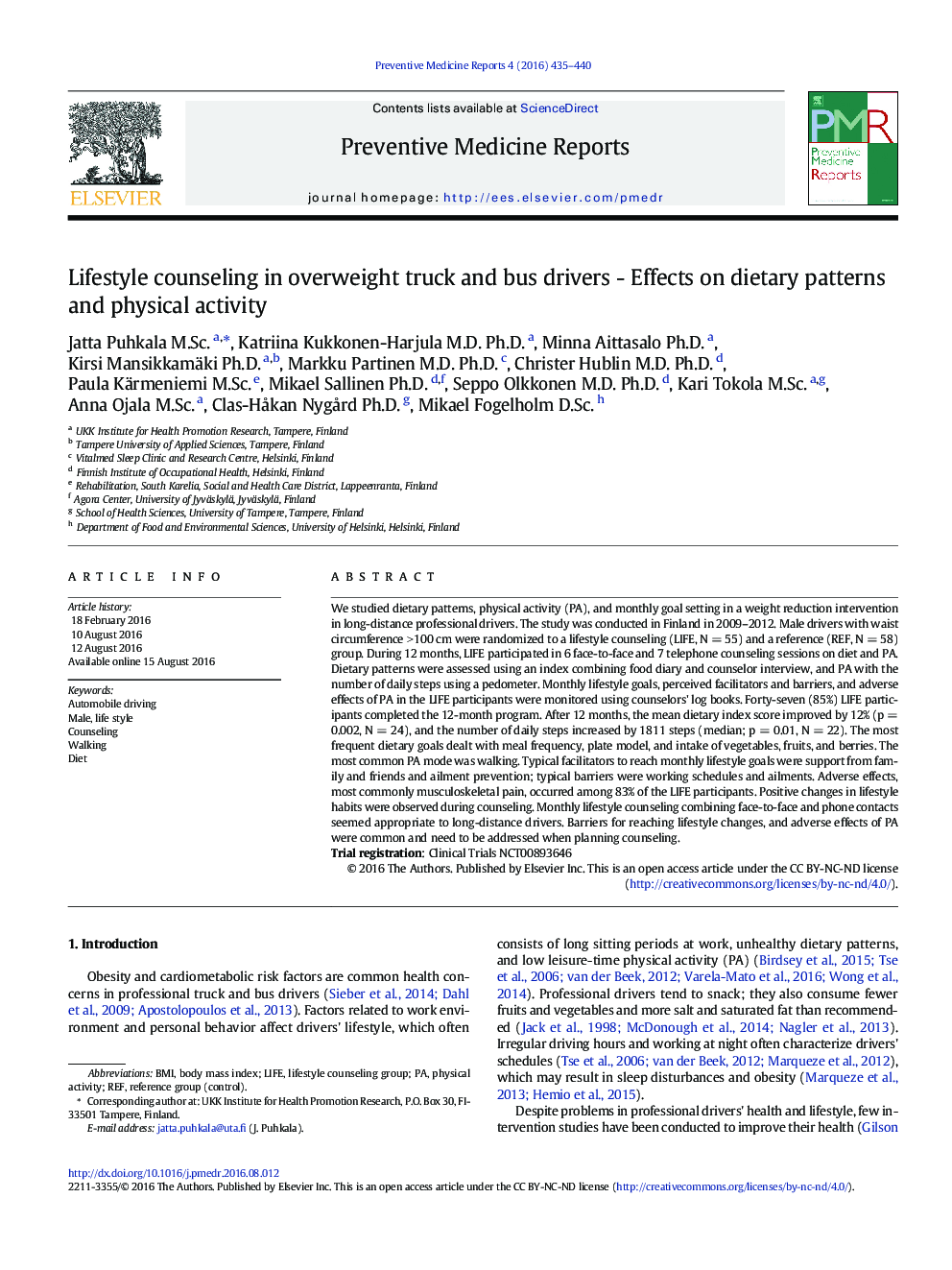| کد مقاله | کد نشریه | سال انتشار | مقاله انگلیسی | نسخه تمام متن |
|---|---|---|---|---|
| 4202292 | 1609088 | 2016 | 6 صفحه PDF | دانلود رایگان |
• Our study is one of the few lifestyle counseling RCTs in truck and bus drivers.
• Dietary habits improved during 12-month program.
• Habitual walking and daily step count increased during 12-month program.
• Improved dietary habits were associated with weight reduction.
• Perceived barriers related to working schedules and ailments were common.
We studied dietary patterns, physical activity (PA), and monthly goal setting in a weight reduction intervention in long-distance professional drivers. The study was conducted in Finland in 2009–2012. Male drivers with waist circumference > 100 cm were randomized to a lifestyle counseling (LIFE, N = 55) and a reference (REF, N = 58) group. During 12 months, LIFE participated in 6 face-to-face and 7 telephone counseling sessions on diet and PA. Dietary patterns were assessed using an index combining food diary and counselor interview, and PA with the number of daily steps using a pedometer. Monthly lifestyle goals, perceived facilitators and barriers, and adverse effects of PA in the LIFE participants were monitored using counselors' log books. Forty-seven (85%) LIFE participants completed the 12-month program. After 12 months, the mean dietary index score improved by 12% (p = 0.002, N = 24), and the number of daily steps increased by 1811 steps (median; p = 0.01, N = 22). The most frequent dietary goals dealt with meal frequency, plate model, and intake of vegetables, fruits, and berries. The most common PA mode was walking. Typical facilitators to reach monthly lifestyle goals were support from family and friends and ailment prevention; typical barriers were working schedules and ailments. Adverse effects, most commonly musculoskeletal pain, occurred among 83% of the LIFE participants. Positive changes in lifestyle habits were observed during counseling. Monthly lifestyle counseling combining face-to-face and phone contacts seemed appropriate to long-distance drivers. Barriers for reaching lifestyle changes, and adverse effects of PA were common and need to be addressed when planning counseling.Trial registration: Clinical Trials NCT00893646
Journal: Preventive Medicine Reports - Volume 4, December 2016, Pages 435–440
